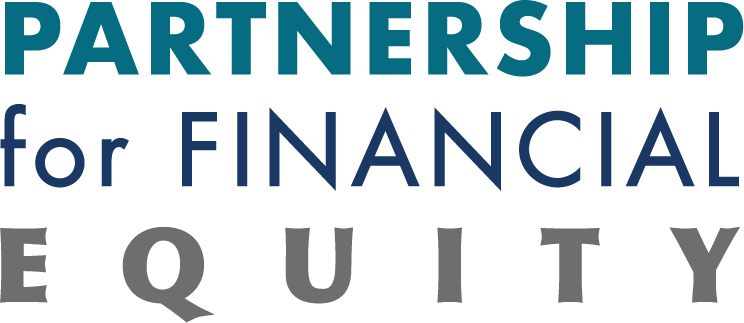MCBC Releases Report on 2020 Small Business Lending Patterns with UMass Donahue Institute
October 07, 2022
Boston, MA – Lending to small businesses in Massachusetts peaked in the first year of the pandemic but not to low- and moderate-income and majority persons of color census tracts, according to a report released today by the Massachusetts Community & Banking Council and the University of Massachusetts Donahue Institute.
Overall, Community Reinvestment Act data shows lending institutions made 194,025 small business loans in Massachusetts in 2020. Approximately 35.4 percent of loans went to businesses with annual revenues of $1 million or less. The number of CRA loans has increased gradually since 2009, reaching a new peak in 2020. When the pandemic hit, almost 28,000 more loans were issued compared to 2019 largely due to the Paycheck Protection Program, a Small Business Administration-backed loan that helped businesses keep their workforce employed during the COVID-19 crisis.
.
Compared to 2019, the 2020 CRA data shows some shifts in the number of geographies that received loans. The overall loan count grew; however, there was not a proportionate increase in loans to low- and moderate-income and majority persons of color census tracts. Tracts which were middle to upper-income or majority white received both more loans this year than last overall, and proportionately a higher share of loans issued.
“There is growing evidence that no matter what the ultimate cause of disproportionate access to capital, in the rush to get out funding to businesses during the pandemic, equity suffered,” said Carrie Bernstein, Research Manager and State Data Center Manager at the UMass Donahue Institute.
One of the drivers of this disparity is differing access to banking services. A Federal Reserve report from August 2020 notes that most Black business owners do not have an existing banking relationship, which complicated applying for these loans and securing them once the application had been submitted. Even with access to a bank, the ability of that bank to secure Paycheck Protection Program loans for their clients varied widely with some banks not submitting applications to the federal government until just before funds had been depleted in the initial round. This weakened PPP loans as a source of aid to communities of color. Business closures were transpiring at this time at very high rates, and more so for owners of color. The Federal Reserve noted that “Nationally representative data on small businesses indicate that the number of active business owners fell by 22 percent from February to April 2020” and that Black-owned business closed at roughly nearly twice the rate of small firms overall (41 percent nationally). The report also notes Hispanic and Asian owned firms closed at above average rates (32 percent and 26 percent respectively) while white firms closed at below average rates (17 percent). These data points suggest that despite large amounts of money being made available to businesses during the first year of COVID, it often did not go to the communities and businesses that needed the help the most. This disparity, or closures which transpired even before the loan program started, or both, may have driven the smaller number of loans to majority POC and low- or moderate-income tracts in the 2020 CRA dataset.
Utilizing CRA data on the number of loans issued, American Express is the most active lender in Massachusetts over the last 10 years issuing smaller loans to existing Amex credit card holders. However, Bank of America loaned more than triple the amount of dollars than American Express in Massachusetts. Combined, Bank of America and Citizens Bank made up slightly over 20 percent of all the loan dollars issued in Massachusetts in 2020. These two banks rank 2nd and 3rd respectively in number of loan originations, after American Express. The remainder of the top ten lenders in terms of loan count were as follows: Eastern, JP Morgan Chase, Lake Forest Bank & Trust, Rockland Trust, Capital One Bank, and TD Bank.
In 2020, Eastern Bank and Rockland Trust were the most active CRA small business lenders of those headquartered here in Massachusetts. Combined, these two lenders made over 15,846 loans in 2020, nearly three times what they issued in 2019 due to the Paycheck Protection Program. Local institutions picked up the volume of lending in 2020. According to the report, there were thirteen lenders headquartered in Massachusetts that issued more than 1,000 small business loans in 2020 while that number was only two in 2019. Cape Cod Five, Enterprise Bank, Berkshire Bank, Avidia Bank, Middlesex Savings, and Westfield Bank were Massachusetts based institutions that were in the top 25 overall small business lenders in the state.
About the Massachusetts Community & Banking Council
The Massachusetts Community & Banking Council (MCBC) was established in 1990 to bring together community organizations and financial institutions to affect positive change in the availability of credit and financial services across the Commonwealth by encouraging community investment in low- and moderate-income communities and communities of color. MCBC is funded through the financial support of member financial institutions and the Board of Directors consists of an equal number of representatives from leading community organizations and financial institutions.
About the UMass Donahue Institute
Established in 1971, the UMass Donahue Institute is a public service, research, and economic development arm of the University of Massachusetts. Our mission is to apply theory and innovation to solve real world challenges and enable our clients to achieve their goals and aspirations. We serve clients in the public, non-profit, and private sectors in the Commonwealth and throughout the nation and the world. For more information, www.donahue.umass.edu.
The Institute’s Economic & Public Policy Research (EPPR) group is a leading provider of applied research, helping clients make more informed decisions about strategic economic and public policy issues.
EPPR produces in-depth economic impact and industry studies that help clients build credibility, gain visibility, educate constituents, and plan economic development initiatives. EPPR is known for providing unbiased economic analysis on state-level economic policy issues in Massachusetts and beyond, and has completed a number of industry studies on IT, defense industries, telecommunications, health care, and transportation. Their trademark publication is called MassBenchmarks, an economic journal that presents timely information concerning the performance of and prospects for the Massachusetts economy, including economic analyses of key industries that make up the economic base of the state.

